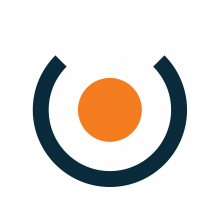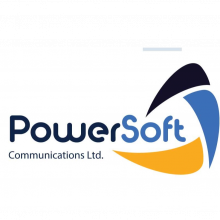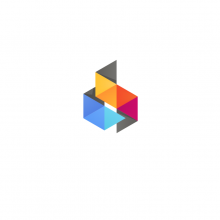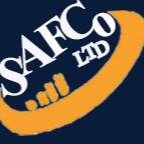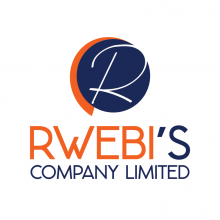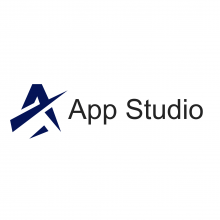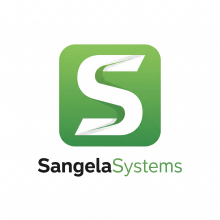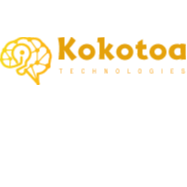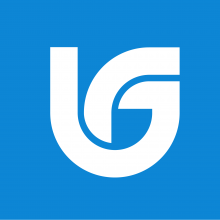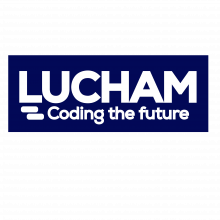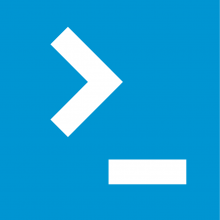
There are 31 Companies in Tanzania
that provide Laravel Development Services!
Tanzania is more known for its safari, national parks, and UNESCO heritage sites. It has made huge progress in the digital sector, and local companies are providing non-financial aid to interested investors in their IT sector. Consulting, co-working spaces with views of the safari, and mentoring are only a few of the services you can benefit from in Tanzania.
Discover Top IT Companies in Tanzania specialized in Laravel and other related services. Find the best IT service providers for your projects.
Laravel is a popular open-source PHP web application framework used for building web applications and websites. It's known for its elegant and expressive syntax, as well as its rich set of tools and libraries that simplify common web development tasks. Laravel was created by Taylor Otwell and released in 2011, and it has since gained widespread adoption in the PHP development community
Handpicked companies • No obligation to hire • 100% risk-free
Featured Companies in Tanzania
This month, the following Laravel Development companies managed to provide an outstanding service and support. It's worth taking a look.
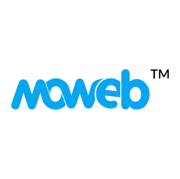
Moweb Technologies Private Limited Verified Company
Dar Es salaam, Tanzania Head office in: United Kingdom
Be Mobilized
Fabonic Ltd. Is an IT Consultancy Company in Tanzania dealing in Web services, Software, Hardware, Programming, Atomization of Manual Process, Etc.
Explore Top Laravel Development Companies in Tanzania
Olla Group Limited is a Tanzania-based IT partner delivering secure, scalable tech solutions to drive growth and digital transformation.
Softgrid Systems is a Tanzanian technology company dedicated to deliver smart, and impactful digital solutions for businesses, and industries.
Services:
Powersoft Communications Limited, in Dar es Salaam, Tanzania, offers ERP solutions, software development, hosting, and IT support for businesses.
Services:
Software company
Our Company deals with Empowering businesses and individuals through innovative IT solutions, expert training, and financial systems excellence.
Georgetown Group Company Limited is the leading in Enterprise ICT Solutions Company and Management in Tanzania.
The Leading Software and App Developers in Tanzania.
Rwebi’s Company Limited is a professional business solutions provider offering a wide range of services including ICT, marketing, security..
Services:
App Studio is a leading software company in Tanzania that brings together experts and new technologies to create high-quality solutions.
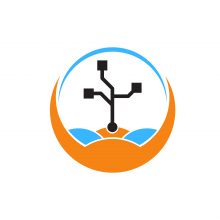
Oasis Technologies TZ Verified Company
Dar Es salaam, Tanzania Head office in: Tanzania
A company at the forefront of digital solutions, Offering services aimed at empowering businesses and organizations to thrive in the digital age.
Services:
Tanzania Tech Media
Over 60% of retailers in Kariakoo trust SangelaSystem. We are the leading ICT solution for private schools and polyclinics.
Services:
We are confident that we offer the most competitive prices in the Industry, and our price-match guarantee ensures that you will never pay more!
Services:
GCM Innovation & Marketing Consultancy is a full-service marketing consulting agency registered in the United Republic of Tanzania
best website design , mobile development and digital marketing solutions agency in tanzania
We are a digital marketing and IT company with a mission to solve business challenges through technology and innovation across Tanzania.
Services:
A digital agency based on innovation, creativity and performance. We serve the needs of individual, both retail and corporate business.
Services:
Your Trusted Tech Partner
We simplify complex challenges through user-friendly technology.
Services:
Optin brings emerging technologies, infusing them in every project we work on with nd set of digital capabilities tailored to your strategy.
- 1
- 2
Filter Laravel Development Companies in Tanzania by Cities
Find the right tech company near you or from a specific city. Some of the best companies might be located in smaller cities.
Find more Laravel Development companies around the world
TechBehemoths is the world's most advanced and user-friendly platform to match IT Companies with real clients without hustle.
The Tanzanian ICT Industry: Tech Companies & Performance
Tanzania is more known for its safari, national parks, and UNESCO heritage sites. Also, in Tanzania, people are coming more to observe wildlife and lions in their natural habitat - so far, nothing about the IT sector. But it’s no surprise, since the World Bank ranked Tanzania 141/190 in the ease of doing business, and this may look somewhat intimidating both for investors and for potentially interested clients of IT companies. Now, in 2025, when you have the whole of Europe, the Americas, and Asia, almost no one would choose an African country for digital services.
With all these, Tanzania has made huge progress in the digital sector, and local companies are providing non-financial aid to interested investors in their IT sector. Consulting, co-working spaces with views of the safari, and mentoring are only a few of the services you can benefit from in Tanzania. Also, in the context of COVID-19, the country entered the Green Zone, with around 10 cases in the entire country.
Why You Should Work With Tanzanian IT Companies
So, obviously, you will not find in Tanzania a well-developed IT infrastructure or the industry overall. However, you may find in Tanzania a friendly ecosystem that will help you develop the industry, and this may be very rewarding.
Not so many Tanzanian IT companies are present on the local market, and the ones that exist are doing BPO and working for foreign customers from their operational centers located across the country. Its strategic location and a friendly business environment can make the country for many a great place where you can combine business with a vacation.
There are no specific restrictions and things that you should know about Tanzania when visiting it, except that you can enjoy your time and do the work you planned to do.
What to Pay Attention to When Working With Tanzanian IT Companies
On the other hand, there are specific risks one may be exposed to in Tanzania. The undeveloped IT industry, language barriers, and inexperienced developers and project managers can be a headache if Tanzanian IT companies are chosen as partners in a digital project. These risk factors come in contrast with the benefits the country has to offer, so deciding this direction is an important step.
How Reliable Are Tanzanian IT Companies
You can’t really tell if Tanzanian IT companies are reliable or not. Simply because the local digital agencies didn’t take a chance to make a name for themselves on the international market, the country has a chance now to attract investors, create businesses that provide decent service quality, and start developing the country's IT sector to a certain level.
How the Tanzanian IT Sector Relates to the Neighboring Countries
In the region, some countries perform better and lower than Tanzania. Even though the development levels of the IT sector are not comparable between Tanzania and its neighboring countries, Kenya and Congo have managed to become the hosts of some international IT companies, but that’s probably because of the location rather than because of development. On the other hand, Uganda, Rwanda, and Burundi - the other neighboring countries- are far from implementing digitalization at the level Tanzania is today. Another thing that is worth mentioning is that the main investor in East Africa is China and its companies. Probably, this will help the countries to develop at least in some fields that are more essential than IT.
What is Laravel and what are its benefits for your projects?
Laravel is a popular open-source PHP web application framework used for building web applications and websites. It's known for its elegant and expressive syntax, as well as its rich set of tools and libraries that simplify common web development tasks. Laravel was created by Taylor Otwell and released in 2011, and it has since gained widespread adoption in the PHP development community. Here are the key aspects and features of Laravel:
-
Elegant Syntax
-
MVC Architecture
-
Artisan CLI
-
Database Abstraction
-
Blade Templating Engine
-
Middleware
-
Authentication and Authorization
-
Routing
-
Caching
-
Testing
-
Security
-
Community and Ecosystem.
-
Scalability
When choosing a PHP framework for a project, there are several alternatives to Laravel, each with its strengths and use cases. The choice depends on project requirements, familiarity with the framework, and specific preferences. Here are some notable PHP frameworks that often compete with Laravel:
-
Symfony: Symfony is a high-performance PHP framework known for its flexibility and modularity. It is often used for large, enterprise-level applications. Laravel actually uses several Symfony components under the hood. Symfony provides robust tools for building web applications, APIs, and microservices.
-
Zend Framework (Laminas): Zend Framework, now known as Laminas, is a mature framework that focuses on building scalable and enterprise-grade applications. It provides a collection of reusable components for various tasks, allowing developers to choose and integrate only what they need.
-
CodeIgniter: CodeIgniter is a lightweight and straightforward framework that emphasizes simplicity and speed of development. It's often chosen for smaller projects and rapid application development (RAD). While it has a smaller feature set compared to Laravel, it's known for its minimal learning curve.
-
CakePHP: CakePHP is a full-stack framework that focuses on convention over configuration (CoC). It comes with features like scaffolding, a built-in ORM, and a friendly community. It's known for its simplicity and convention-driven development.
Companies specialized in providing services using Laravel can significantly benefit relevant projects. Their expertise in Laravel development allows them to efficiently create customized web applications that meet specific project requirements. With a deep understanding of Laravel's capabilities, these companies can ensure the project benefits from Laravel's robust features, clean code structure, and security mechanisms.
They expedite development using Laravel's built-in tools and extensive package ecosystem, making them well-suited for both small-scale and enterprise-level applications. Security is a top priority, with specialists implementing best practices to protect against common web vulnerabilities, enhancing the project's safety, especially when dealing with sensitive data.
After the project launch, these specialized companies offer ongoing maintenance and support, addressing issues, applying updates, and ensuring the application's long-term reliability. They also excel in integration with third-party services and technologies, expanding the application's functionality and enhancing the user experience.
In addition, some companies may offer UX and design services, further improving the project's visual appeal and usability. Through rigorous testing and quality assurance, they identify and resolve potential issues before deployment, ensuring the application performs reliably across various devices and browsers.
